2019 is off to a good start in my reading goals! How are your reading goals going?
1 ) The Shadow Wife by Diane Chamberlain
I enjoyed this book a lot.
There were two stories going on in it. The first was back in the 50’s and 60’s about twins Carlynn and Lisbeth Kling–born into money. Carlynn was also born with a gift of healing. She doesn’t understand that gift, but when she touches people, she can heal them. Carlynn ends up going into medicine and becoming a pediatrician and eventually word gets out that she’s also a healer and she ends up starting her own foundation/research clinic. The story about Carlynn and Lisbeth is interesting because of the relationship between the sisters and the social norms during that time period (sexism, racism, etc). I don’t want to give away too much because the way the story unravels is kind of a nice, slow surprise.
The other story takes place in present time and is about Joelle, Mara and Liam. When Joelle was born on a commune thirty-four years ago, she wasn’t breathing. But miraculously there was a doctor nearby that helped–Carlynn–who was also a mysterious healer. So that is how the stories intersect.
Mara, Liam and Joelle all work together in a San Francisco hospital and are best friends. When Mara gives birth to her son, she has an aneurysm and is basically brain dead but still alive. Her husband Liam can’t let go. For a year, Joelle and Liam visit Mara in the nursing home every day, wishing she would recover. They grow closer to each other and can’t deny their feelings for each other. Is it wrong to fall in love? When Mara will never be her old self?
The ending had a good twist I didn’t see coming. I liked it!
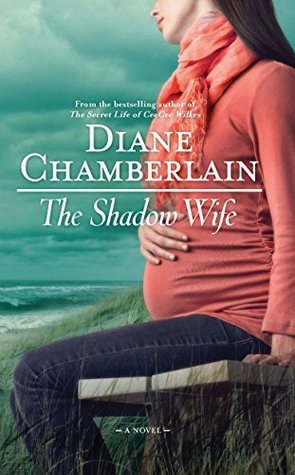
2 ) Give Me The Child by Mel McGrath
This turned out to be a pretty decent thriller. What a dysfunctional family! Especially considering the main character is a neuro/child psychiatrist.
Caitlin is a doctor does research and treats children who are the worst cases–psychopathic kids who are deep need of treatment. She’s married to what seems like a feckless loser who isn’t really pulling his weight in the marriage or the financial relationship while he’s creating some game that will make them “rich” (so many eye rolls). (I didn’t like the husband from the start.) They have an 11 year old daughter, Freya.
One night, the police arrive on their doorstep with another 11 year old girl. Apparently Caitlin’s husband cheated on her while she was pregnant and this child’s mother is now dead and they are now responsible for taking care of her. Except, there’s something not quite right about her.
The book reminded me a lot of the Girl on the Train with the themes of alcoholism, cheating/dirtbag husbands and gaslighting. It was decent read.
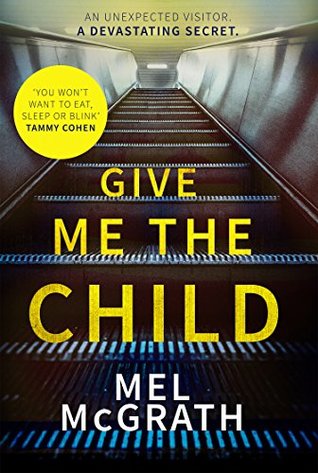
Fascinating, long read that spans multiple generations in Korea and Japan. It starts in the early 1900’s and details arranged marriage and extreme poverty and starvation. It focuses on the arranged marriage between Hoonie and Yangjin both considered “undesirable” and unable to find someone to marry. Hoonie has a cleft palate and Yangjin is very poor and has many sisters so there’s no dowry. But a matchmaker makes the deal and they find they grow to love each other. They marry and live in a house in a remote area of Busan, Korea that they turn into a boarding house so they could afford to pay the rent and buy food.
They have many children but only one survives: Sunja, a daughter. When Sunja is in her teens, Hoonie dies and Sunja and her mother take in more boarders and desperately try to survive on their own during the Depression. Sunja meets an older man and falls in love and ends up pregnant. Except it turns out he’s married and lives in Japan and has three daughters there. He can’t leave his wife and Sunja refuses to be a mistress in Korea, even though he offers to take care of her and the baby.
Sunja and her mother are rescued by one of their boarders, Isak, a Korean Christian minister who offers to marry her and take her to Japan with him where he has a job as a minister waiting for him. He will raise her child as his and give him a name.
The book is a beautiful, fascinating read that details many generations. Like many of the other reviewers, I loved the first 50-60% of the book. The love story, the struggles, the tragedies, the experiences they had in Japan during World War 2 were all really interesting to read! But the last 1/3 of the book dragged on a bit. I didn’t care as much about the newer generations of the family. I felt like that could have been left out or edited down more.
Despite that, I loved the book. The racism, the poverty, the way the Japanese looked down on the Koreans were all very interesting (and new to me) to read.
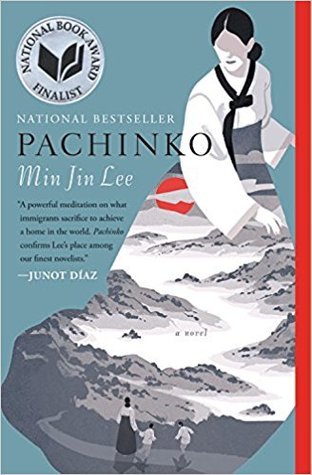
4 ) That Kind of Mother by Rumaan Alam
This was an interesting, different book. The book takes place in the mid-80’s. Rebecca is a new mother. She’s probably suffering from PPD and feeling overwhelmed. Breastfeeding is difficult, her British husband works for the Embassy and is gone a lot. She’s a poet but after becoming a mother, feels lost.
“Just because something is natural doesn’t mean it’s easy.”
“You need to try something. Talk therapy. SSRIs. Meditation. This isn’t helping anyone, or it’s helping them but not you. You can’t disappear into motherhood. It’s not good for you. And I can see that’s what you’re doing. You’ve vanished.”
They decide to hire a nanny, Priscilla, to help out. Priscilla is African American, a few years older than Rebecca, and works for La Leche League and used to be a nanny.
Rebecca is a wealthy white woman that lives in a bubble. She came across as very much oblivious about everything. Money. Race. Privilege. Everything. She just seemed to live in denial. Having Priscilla in her life seemed to help her with her undiagnosed PPD and Rebecca slowly opens her eyes to racism.
“A movie with only one black person, and she’s a servant. You don’t think Priscilla thinks of herself as our servant?”
Her mother-in-law makes this comment:
“I’ve noticed your girl sits with you. When you’re having your lunch.” Elizabeth’s smile was inscrutable. “That wouldn’t have been done, in my day.”
It was very uncomfortable. But Rebecca, even though she’s aware that it’s racist, doesn’t speak up. That’s the common theme in the book.
Then Priscilla announces that she’s pregnant. Rebecca is worried Priscilla will quit. Rebecca lives in denial again and is convinced that Priscilla will continue to be her nanny once she has her own child. When Priscilla unexpectedly dies in childbirth, Rebecca decides to adopt her son, Andrew. And now Rebecca has to figure out how to raise a black son when you are clueless and white.
“You can’t spend your life feeling guilty about your being white and his being black, about you being alive and her being dead.”
One of the most difficult parts of the book was towards the end, when Andrew was around 10 years old. Priscilla’s adult daughter, Cheryl, and her husband Ian, told oblivious Rebecca about how to protect Andrew because he’s almost a black teenage boy. Even though the story was taking place in the late 90’s at this point, it was very relevant to the police shootings that are happening now.
“Black kids don’t get to be kids much longer than twelve, really.”
Overall, it was a good book. I liked Priscilla. I liked that Rebecca adopted Andrew and I liked that the book tackled some of the topics of race. I felt like it just touched the tip of the iceberg of race, though, and I didn’t feel like Rebecca ever got a clue and understood her privilege. That was the only flaw for me.
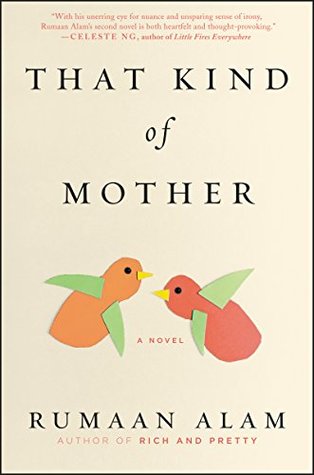
5 ) My Oxford Year by Julia Whelan
I thought this was going to be another typical chick lit book. Charming but predictable. However, the book took an unexpected turn that I did not see coming and it changed the whole feel of the book.
Ella is a spending a year at Oxford on a Rhodes Scholarship. Her career at home is politics and education but once she gets to England, her focus changes. She falls in love with poetry and literature and makes new friends. She also meets a man that will change the way she looks at her life and how she keeps everyone at arm’s length. It reminded me a bit of “Me Before You”.
‘Love well those who are dying, so that they may die in love.’
“The hardest thing is love, with no expiration date, no qualifiers, no safety net. Love that demands acceptance of all the things I cannot change. Love that doesn’t follow a plan.”
The writing was really good. I liked the style and the way the book read. I liked the supporting characters a lot. I went back and forth on whether I liked Ella, but the rest of the book was strong enough to make me overlook that.
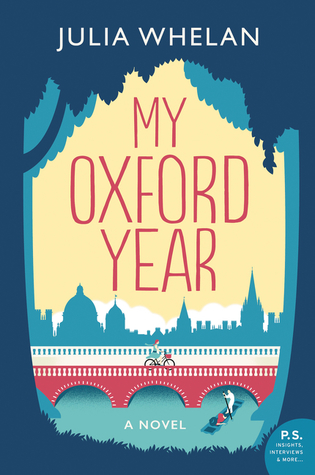
6 ) Small Victories: Spotting Improbable Moments of Grace by Anne Lamott
This book is a collection of short stories, each chapter a different topic, about Anne’s life and the people in it. The common themes in the book are family, faith, cancer, death, grief and healing.
I’m not religious, and generally turned off by organized religion, but Anne doesn’t come across as pushy or self-righteous in her faith. Her book is enjoyable because she shares how she learns to be a better person, how to get perspective, how to forgive people, how to grow as a person and a mother and a friend.
“When my son was six or seven, and realized that he and I were not going to die at the exact same moment, he cried for a while, and then said that if he’d known this, he wouldn’t have agreed to be born.”
“Redefinition is a nightmare—we think we’ve arrived, in our nice Pottery Barn boxes, and that this or that is true. Then something happens that totally sucks, and we are in a new box, and it is like changing into clothes that don’t fit, that we hate. Yet the essence remains. Essence is malleable, fluid. Everything we lose is Buddhist truth—one more thing that you don’t have to grab with your death grip, and protect from theft or decay. It’s gone. We can mourn it, but we don’t have to get down in the grave with it.”
She had a lot of pearls of wisdom about growth that I enjoyed. The chapter about forgiveness was particularly interesting to me and I liked this realization she had:
“…that I was trying to get her to carry all this for me because it hurt too much to carry it myself.”
“Rumi wrote, “Out beyond ideas of wrongdoing and rightdoing, there is a field. I’ll meet you there.”
“Forgiving people doesn’t necessarily mean you want to meet them for lunch. It means you try to undo the Velcro hook. Lewis Smedes said it best: “To forgive is to set a prisoner free and discover that the prisoner was you.”
She also talked about being an alcoholic, getting sober, about dieting culture and how she tried to heal herself:
“I binged, dieted, and binged, like my mother, but never felt that simultaneous state of being full without being stuffed. And like my father, I began to drink a lot. Like both of them, I had the disease called “More!” and absolutely could not feel gently satisfied.”
“…when I feel like shoveling in food, a man, or expensive purchases, the emptiness can be filled only with love—a nap with the dogs, singing off-key with my church. Or maybe, perhaps, a fig.”
I could really relate to that one. I think a lot of addictions (alcohol, food, drugs, exercise, whatever your addiction is) are trying to fill a hole inside.
The book is funny. Her writing style is relatable and hilarious, thought-provoking and emotional. I teared up many times and could relate to a lot of the stuff she wrote about. Highly recommend!
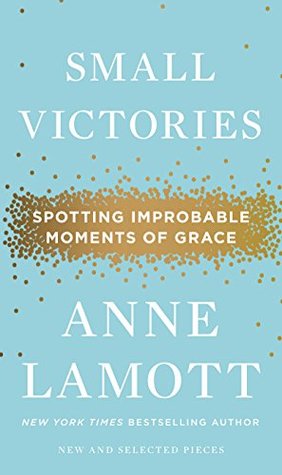
Happy reading!
These posts have Amazon affiliate links.
Marianne
Thanks for the book recommendations. They all sound pretty good.
emmaclaire
I agree with your assessment of Pachinko. Our book club read it and all of us thought the last 1/3 was not as engaging as the first part of the book. I got to the point where I just didn’t care much about the characters. I did very much enjoy learning about the Korean culture and Korean/Japanese relations post WWII, that was a topic I knew very little about.
I’ve finished 5 books so far this year, so fairly well on-track to hit my goal of 65. And now I have several more to add to my “to-read” list – thanks!
Lisa Eirene
Yes! I found the first part so fascinating! I did not know about the Korean culture and it was interesting to read, especially the WW2 part. None of that was covered in my history classes.
Nice job on your goals!!
Beth
Pachinko is on my to read list!
Lisa Eirene
I really liked it! Hope you read it.